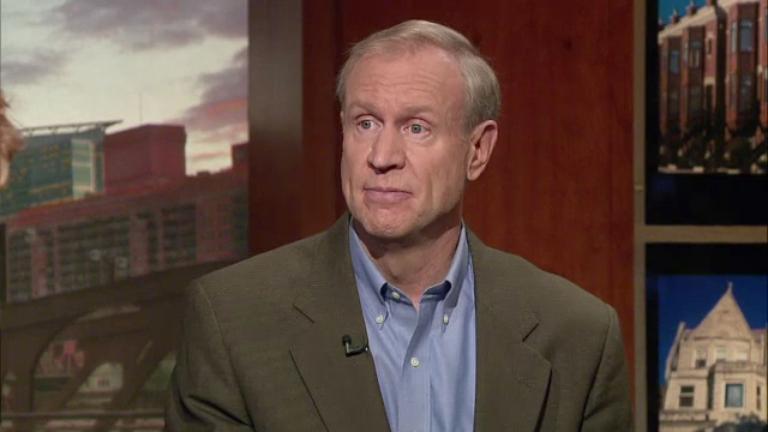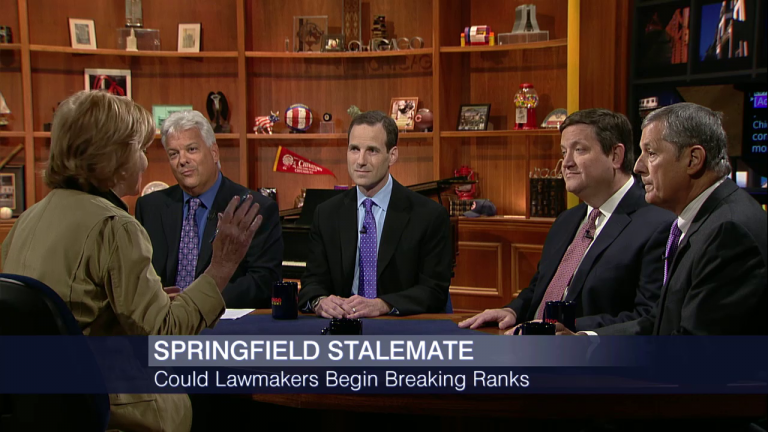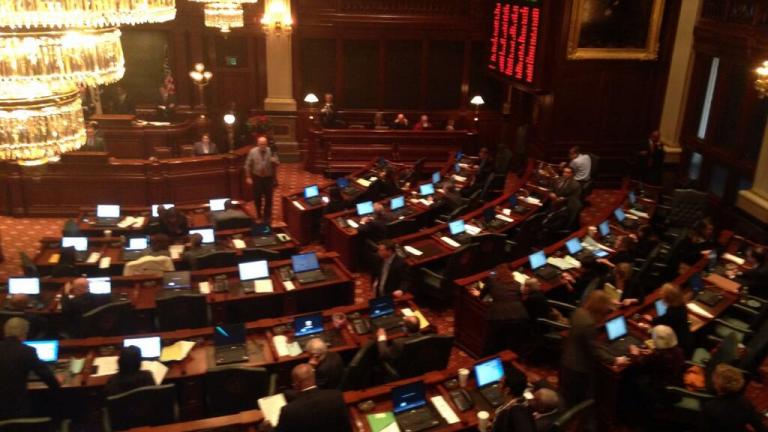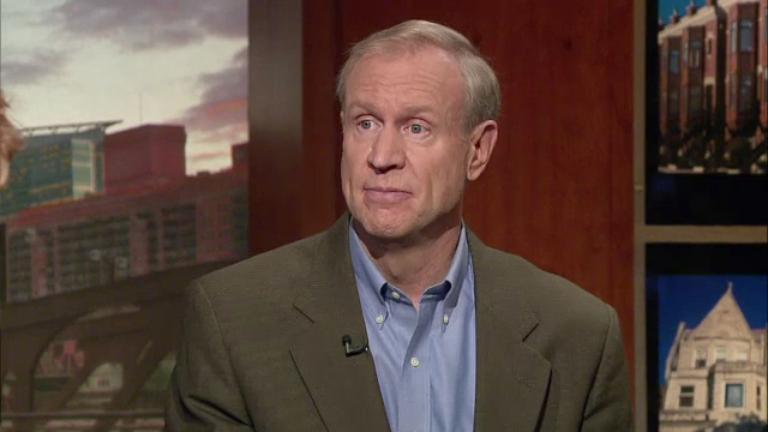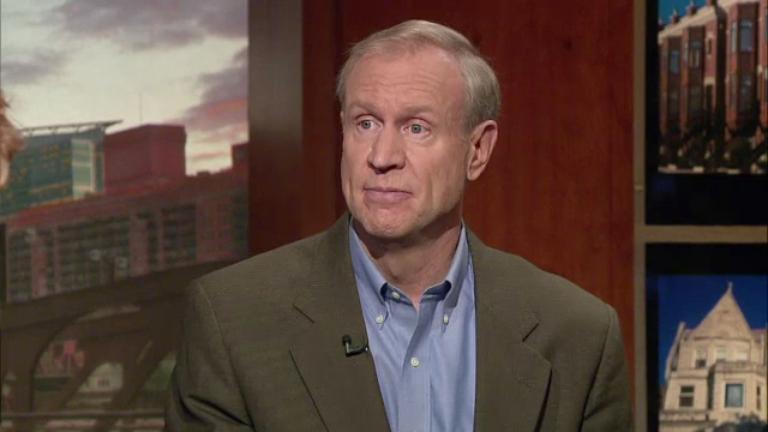One week after a legislative victory over House Speaker Michael Madigan and one day after the state's comptroller said the budget impasse could lead to a deficit of $12 billion, Gov. Bruce Rauner faced the media.
Has the governor softened his stance on some of his agenda items, given that the state's fiscal picture is growing worse and there's no budget agreement in sight? And what is the governor's message to Democrats who aren't scheduled to be back in session for weeks?
The message from the conservative governor to the General Assembly: “I will raise taxes, but you’re going to have to agree to some of the pro-business reforms I want.”
The governor made his remarks Thursday at a press conference highlighting a U.S. Chamber of Commerce study that says the state is one of the most litigious in the nation.
There are more lawsuits in Illinois with higher awards than almost anyplace else, according to the study, which the governor says is scaring business out of the state.
It’s one of the things he wants reformed as part of a budget agreement, along with redistricting reform, term limits, changes to the workers compensation law, and a statewide property tax freeze which would include with it some changes to public worker wages and collective bargaining.
“You want me to raise taxes, I’ll do it, but I’m going to do it with reforms,” Rauner said. “If [you] don’t want any reforms with it, you do the tax hike. You’ve got a supermajority. You’ve proven you can do things without my support. But you have to choose. Do your unbalanced budget and raise taxes, or work with me. So far they’ve refused to do it.”
 House Speaker Michael Madigan
Democratic House Speaker Michael Madigan has referred to Rauner’s requests as being extraneous to the budget situation and “operating in the extreme.”
House Speaker Michael Madigan
Democratic House Speaker Michael Madigan has referred to Rauner’s requests as being extraneous to the budget situation and “operating in the extreme.”
Wednesday, the state’s comptroller said that the budget impasse is costing the state dearly. The bill backlog could approach $12 billion by the end of the year because programs are still being funded without enough money to pay for them.
Despite the worsening situation, the governor maintains that the holdout is a worthy fight.
“We are increasing the amount of unpaid bills,” he said. “It’s outrageous, I hate it. Some of it has 12 percent interest, some has 9 percent. It’s outrageous. The deficit was $4 billion out of balance, right now it looks like it’ll be $5 billion out of balance. Ridiculous, unacceptable, all we can do is keep pushing as hard as we can.”
One of the things driving the budget crisis is the huge unfunded pension crisis: There have been lots of failed attempts, but another proposal is surfacing today. It’s coming from some suburban Republican House lawmakers.
The premise is simple: buy retirees out of their pension by offering a one-time lump sum payment worth 80 percent of what the pension would have been worth. The downside is the state has to come up with that money right away, the upside is that lawmakers predict it could save $10 billion in the long term.
“This is a plan that helps us thrive long term,” said Rep. Mark Batinick (R-Plainfield), who is authoring the proposal. “You start to see some of the benefits initially. But if you look at the pension payout ramp, some of those years out – 10-15 years – start to scare me. So you do this, you flatten that ramp.”
Public employee union representatives are not so enthused with this plan, in a statement they said:
"Although no specific 'buyout' program has been proposed, the public should be very skeptical of the concept. A buyout program designed to reduce the net liabilities of the retirement systems would shortchange workers and retirees, giving them less upfront than the value of the modest pension they have earned and paid into. What's more, because the problem plaguing public retirement systems is inadequate funding, a program of lump-sum payouts would further deplete fund assets and make it more difficult to achieve funding solutions.
“We continue to believe that all parties must join together to develop real pension funding solutions, such as reamortizing the debt caused by the state’s failure over decades to adequately fund its obligations.”

